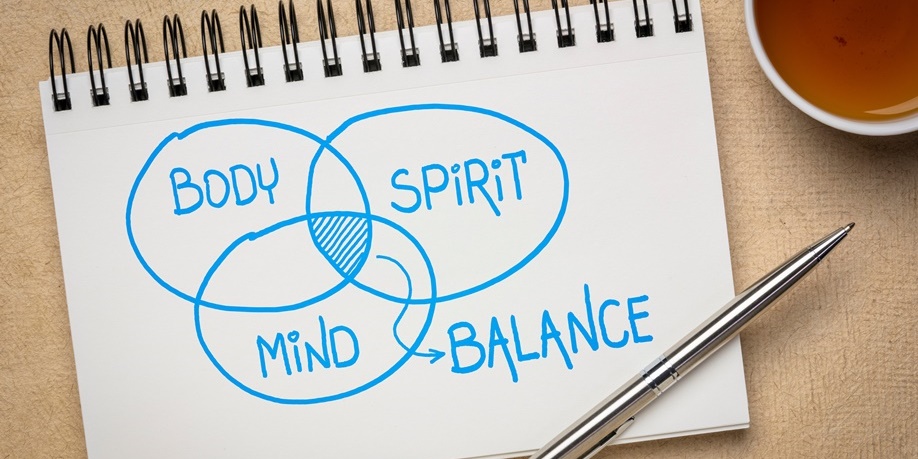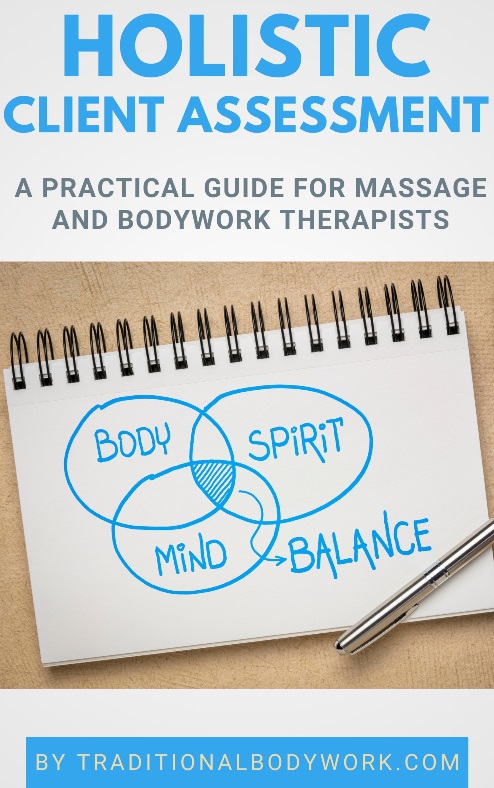
Nowadays, many — if not most — people seek a solution for their psychological, spiritual, or emotional problems through the mind.

That is, people try to find relief of psychological suffering, emotional release, and happiness by means of talks, thoughts, thinking, conceptualizing, and analyzing. One can do that alone — via self-help, or with help of a friend or spiritual guru, or maybe by consulting a mental healthcare provider, such as a psychotherapist.
What is often missed — or perhaps forgotten — is that physical neglect (or physical health issues) can be a direct cause for emotional and mental health problems. It’s what we call a psychosomatic affliction, a phenomenon we usually only consider from out a psychological perspective. For instance, we acknowledge that emotional stress or anxiety can cause a physical health condition, for instance digestive issues, back pains, or headaches.
But things also work the other way around. For instance, bad working posture, too little physical exercise, inappropriate nutrition, or physical trauma and injuries can cause serious damage in the intellectual, emotional, and spiritual sphere. Nevertheless, if we try to solve mental issues that have a physical cause through mind-work, that is, by means of thinking and analysis — we will usually not find relief.

In such cases, what actually needs to be addressed is the body. In fact, one needs the body “to get to work” to resolve issues. Bodywork. It means perhaps more physical exercise, other eating habits, postural corrections, massage to release physical tensions, a healthier living environment, maybe a change of the type of work one does, and so on. Indeed, bodywork can become mind-work.
The ancient Romans already had a famous saying: Mens sana in corpore sano, which is a Latin phrase meaning “a healthy mind in a healthy body.” The idea behind this is that physical exercise (or physical health) is an important part of mental, psychological, and spiritual wellbeing.
Another example can be found in the Indian Yoga Sutras from Patanjali, the most important texts of classical Yoga philosophy describing a complete Yogic lifestyle that includes ethical guidelines, dietary prescriptions, and physical exercises, which are advised to attain a sound meditation and spiritual practice.

In any case, if we are not physically fit, often feel sluggish, inert and lazy, and experience low physical energy and vitality, it will undoubtedly have a negative effect on the state of our mind and emotions. We will start to feel psychological unease and unhappiness, often not even knowing why that is. As such, it’s always important to closely look at the state of our body and try to see if something needs to be done in that particular sphere.
Of course, I don’t mean to say that psychological, psychiatric, or spiritual help is not to be looked for. What I want to say is that mental and emotional relief or happiness — solving our psychological or mental problems — may also come through physical work, or even only through physical work, depending on what the root cause is.
In the end it’s all about balance. Being open-minded, having a discerning mind. Finding the right equilibrium between mental work and bodywork. Mental work for that what needs mental work, and bodywork for that what needs the body to get to work.
















